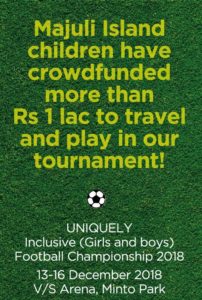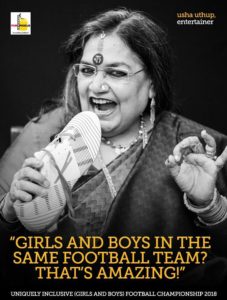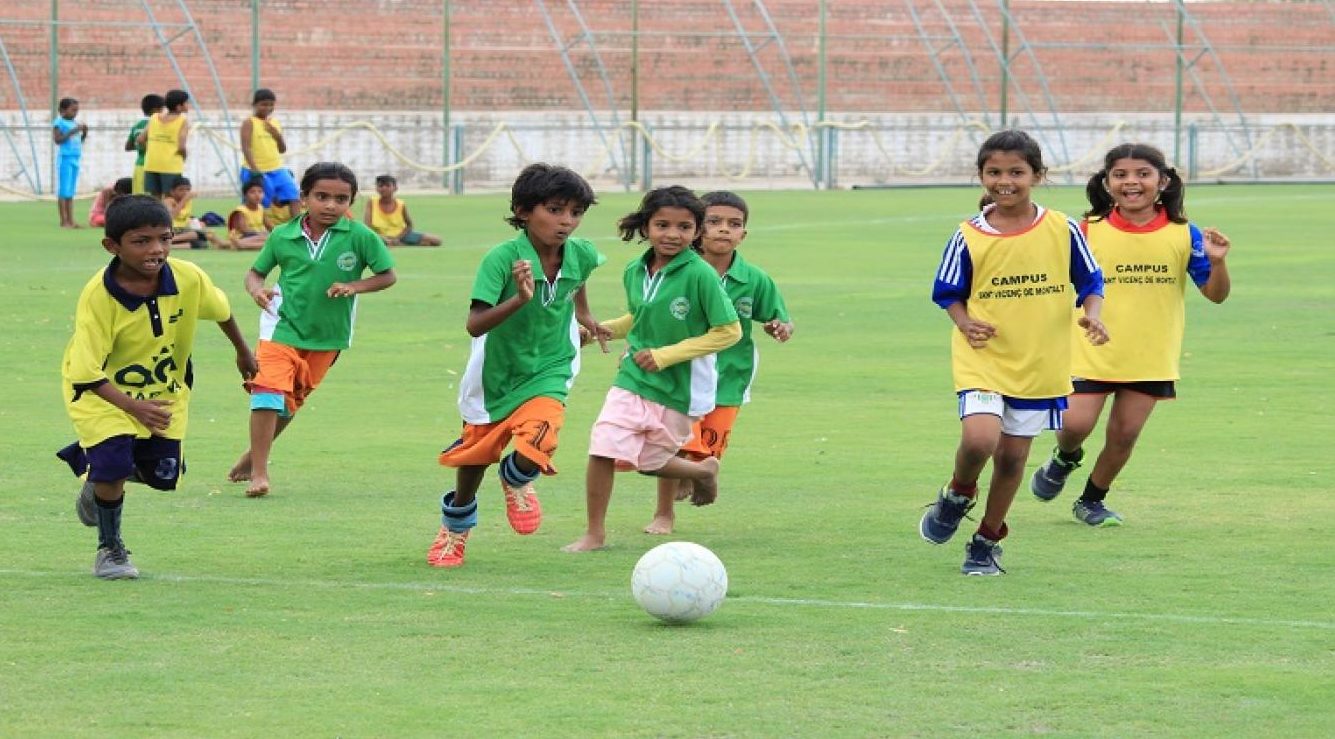Girls versus boys? Or girls and boys?
Of course, it is so much better if girls and boys play in the same team! But girls and boys have always been treated differently right from birth –segregated and encouraged to play separately. The argument: boys are stronger, girls are weaker, or, some sport perceived as “too tough for girls” and some sport “too girly for boys”.
Thankfully, more and more people now understand the need to treat women and men as equal. And several organisations are encouraging mixed gender football in several parts of India.
An upcoming football tournament will be held in Kolkata from December 13 to 16 at the V/S Arena in Minto Park, where girls and boys will play in “mixed” teams. The 48-team football tournament — with 336 girls and boys — will be played for two days in the city. The participants are mostly underprivileged children from all over West Bengal, mainly from rural areas. Teams are also coming in from places such as Majuli Island in Assam. Each team will comprise of three girls and two boys.

The event, organised by Fun Pickle, a joint initiative of Neha Bhatnagar (Chief Fun Officer) and Richa Daga (Chief Pickle Officer), also intends to make learning fun for children.
Neha and Richa both feel that in most of the past events they have organised, they have seen girls as very strong players and also that boys are more sensitive when they play along with girls. This, they feel is significant because in every sport, boys and girls are forced to play separately and almost always in separate teams. In fact, girls are discouraged from playing football at all because they are not considered “strong” enough.
However, all over the world where football is popular and where national teams play the World Cup – the UK, Germany and even in the USA – there are mixed football teams playing professionally, where women and men play in the same team.
Some even think that playing together in the same team can help men and women respect and understand each other more, and it can also prevent teasing and harassment. Akshai Abraham, who founded Project KHEL in 2012 says, “just by getting boys and girls to play together as children, we could inculcate a respect for the opposite gender and maybe prevent teasing, harassment, and rape when they grow up.”
Neha and Richa have both faced a lot of resistance from many organisations that were unwilling to let boys and girls play together. A lot of counselling had to be done before they agreed, they said.
Not surprisingly, the “taboo” exists more in cities than in rural areas. In rural areas, girls and boys still mostly play together whereas in cities, discrimination is acute. Parents are traditionally not in favour of letting their girls play with boys.
When discrimination starts from such an early age, a silent code is laid out before children influencing them on how boys and girls are or “should” be different. Parents are constantly sending messages to their children reinforcing gender roles, expectations and stereotypes.

Under this backdrop, 336 children playing mixed football in a major tournament is a huge step forward, many feel. Sports is a matter of gaining strength and power through practice. It is the best way to break gender stereotypes. These children who have practiced together for three to four months are already on the path of learning how to bond, form a team and be strong together, said Neha.
All of them are staying together for five days in Thakurpukur. There will also be a dance party, dinner, a trip to Eco Park and a workshop counselling them on mental conditioning and how the mind plays a key role in victory, among other things.
A part of the project has been crowdfunded to ensure the children can participate, play and understand the sense of equality. Mudar Patherya, who is helping in the crowdfunding and in raising awareness, said he hoped it will make a lot of difference in the lives of these children from what they learn in this tournament about sports and equality.
[Cover photograph representational; courtesy: sportanddev.org, Anantapur Sports Academy]


Comments are closed.